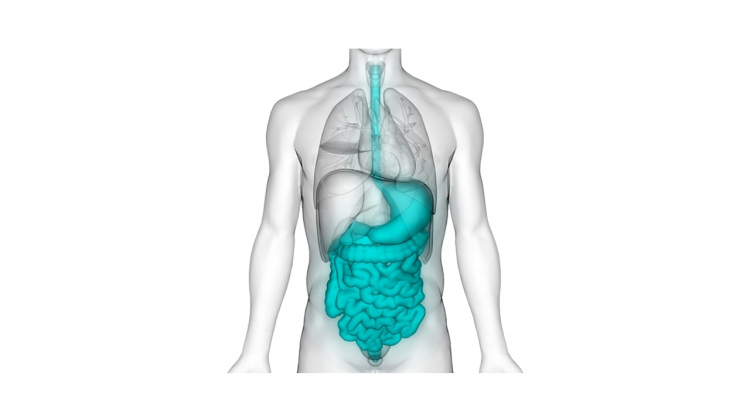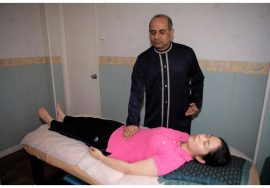
VIRECHANA
There is a general saying – “We are what we eat”.
Ayurveda has a different view on this & says – We should eat what we are; meaning we should eat according to our “Prakruti” (constitution).
There is another saying in Ayurveda – We are what we digest. This means we are not exactly what we eat, rather, we are what we digest, because whatever we eat does not become a part of our bodies unless it is digested and assimilated into our systems.
In other words, Ayurveda advises one to eat as per one’s constitution and to take care of one’s metabolism so that nutrients from the food consumed is properly absorbed in the body. Unfortunately, this does not happen in most cases.
Firstly, because most of us do not know what our constitution is, and secondly, our eating habits leave a lot to be desired, e.g. the time we eat, the way we eat, etc. Additionally, the food items we consume are not so pure & sometimes just plain unhealthy.
Due to these factors, often times, the food we eat is not digested properly/completely. As a result, some or a major portion of the food we consume is transformed into “Ama” (toxic matter in the form of mucus). Even though some of this toxic mucus may be released from the body regularly through urine, stool and sweat, if the formation of toxic mucus does not stop and keeps getting accumulated in the system, it can then become a breeding ground for several diseases, some of which can be quite serious or even fatal.
Therefore, Ayurveda recommends some cleansing methods through which one can detoxify one’s system on a regular basis and thereby keep his/her system relatively clean and healthy to a large extent.
In this article we will discuss one of these cleansing processes, called “Virechana”. This is a Sanskrit word, which simply means to eliminate the unwanted, unhealthy toxic matter from the body, using specific/selected laxative herbs/spices, etc.
For example, in Yoga, “Rechaka” means to breathe out carbon dioxide, similarly in Ayurveda, “Virechana” means to eliminate toxic matter from one’s body. Some seers explain that Virechana is a combination of two words, i.e. “Vi” (stands for Vivek, which means conscience; and also for Vichar, which means thought/mindfulness), and “rechana”, which means to release, to bring out, to eliminate, etc. Therefore, the term “Virechana” means the eliminating process which is done carefully and intentionally/willingly, after giving it proper thought.
In general, there are two types of Virechana – Snigdha (moist/oil) Virechana and Ruksha (Dry) Virechana. Snigdha Virachana is mainly used for people with Vata or Pitta constitutions, and Ruksha Virachana is used for mainly Kapha predominant people.
The factors which are considered before deciding the type of Virechana and type of laxative herbs to be given to an individual are: the age, the Prakruti (constitution) & Vikruti (imbalance/current state of the doshas), occupation, season, any particular ailment the person has, the strength of the “Pachaka Pitta” (digestive fire), the strength of the stomach & bowels (overly sensitive bowels, dry bowels, etc.), etc.
Generally, Virechana is done by taking some laxative herbs, e.g. “triphala” powder/”trivirt” (transparent wood rose), castor oil, etc. But to gain maximum benefits from this simple process, if some prior preparations are done, then the efficacy of Virechana and the benefits derived by doing it, can be much more.
Here, I will share with you a simple method of Virechana, categorized as per one’s predominant dosha.
A) For Vata predominant individuals:
- In the evening, on the day before doing Virechana, have a bowl of whole green mung beans soup (Indian Daal), adding rock salt, black pepper powder, ginger and asafetida, while cooking, and garnished with fresh coriander leaves and parsley leaves.
- At night, take a glass of hot water (about 200 ml), add 1 tablespoon of psyllium husk and ¼ teaspoon green cardamom seed powder to it, and drink it whilst it is still warm, 30 minutes before going to bed.
- Next morning, just drink a glass of hot water, first thing in the morning.
- One hour after drinking the hot water, take another glass of hot water (250 ml), add 1 teaspoon of triphala powder to it, together with a teaspoon of pure edible castor oil, and drink it.
- Do “Urdhva Hastasana” a few times or take a slow walk for about 10 – 15 minutes till the urge to empty the bowels develops.
B) For Pitta predominant individuals:
- In the evening, on the day before doing Virechana, have a bowl of whole green mung beans soup (Indian Daal), adding rock salt, black pepper powder, ginger, cumin seeds and asafetida while cooking and garnished with fresh coriander leaves and parsley leaves.
- At night take a glass of hot water (about 200 ml), add 1 tablespoon of psyllium husk and ¼ teaspoon of black pepper powder to it and drink it whilst it is still warm, 30 minutes before going to bed.
- Next morning, just drink a glass of hot water, first thing in the morning.
- One hour after drinking the hot water, take another glass of hot water (300 ml), add 1 ½ teaspoon of triphala powder and 2 teaspoons of pure edible castor oil, and drink it.
- Do “Urdhva Hastasana” – sway/bend sideways – left to right & then right to left – while keeping the arms in the upright position and head between the arms.
- Do this 8 – 10 times and this will help to put natural pressure on the bowels and facilitate natural evacuation.
C) For Kapha predominant individuals:
- In the evening, on the day before doing Virechana, have a bowl of whole green mung beans soup (Indian Daal), adding rock salt, black pepper powder, ginger, cumin seeds and asafetida while cooking, and garnish it with fresh coriander leaves, mint leaves, parsley leaves and fresh lime juice.
- At night, take a glass of hot water (about 200 ml), add 2 tablespoons of psyllium husk and ½ teaspoon of black pepper powder and ¼ teaspoon dry ginger powder to it, and drink it whilst it is still warm, 30 minutes before going to bed.
- Next morning, just drink a glass of hot water, first thing in the morning.
- One hour after drinking the hot water, take another glass of hot water (300 ml), add 1 ½ teaspoon of triphala powder and 2 teaspoons of pure edible castor oil and drink it. OR, take 1 tablespoon of “Trivirt” with a glass of hot water.
- Do “Urdhva Hastasana” sway/bend sideways – left to right, then right to left – while keeping the arms in the upright position and head between the arms. Do this 8 – 10 times and then lie down on your left side – this will help to put natural pressure on the bowels and facilitate natural evacuation.
Note 1: Triphala mixture should be as follows, as per the predominant dosha of the individual:
For Vata predominant individuals, the ratio of Triphala should be 1:1:1 (equal proportion of Haritaki/Hardey, Behda and Amla powder).
For Pitta predominant individuals, the ratio of Triphala should be 1:2:3 (1 part Haritaki/Hardey, 2 parts Behda and 3 parts Amla powder)
For Kapha predominant individuals, the ratio of Triphala should be 1:2:4 (1 part Haritaki/Hardey, 2 Parts Behda and 4 parts Amla).
Note 2: This process should be done preferably before 8 am in hot weather and before 9:30 am in cold weather. Not later than 10:00 am in any season.
Precautions:
- People suffering from high blood pressure should normalize their blood pressure first before doing Virechana.
- People suffering from hemorrhoids/bleeding piles should avoid this process until the bleeding has stopped.
- Vata and Pitta oriented people should not leave their stomach empty for more than 1 hour, and Kapha predominant individuals for not more than 2 hours, after evacuating their bowels. Otherwise, this can cause Vata imbalance which can result in gastro-intestinal problems.
One should eat only soft food, like porridge, soup, etc. after evacuating the bowels, after a gap of 1 hour. Solid food can be consumed 8 hours after doing this process.
Benefits:
- This simple technique of Virechana has a very good cleansing effect on the stomach, liver, bladder, kidneys and colon.
- This process reduces acidity in one’s body and increases the alkaline level in the body.
- The gut is called “the second brain” and this cleansing method is very beneficial for our mental health as it cleanses the gut.
- This purifies one’s blood and helps to correct several types of skin disorders.
- This also improves the lungs and heart of an individual.
- There are many more benefits mentioned in Ayurveda which can be experienced by those who detox their body by this simple process.
- Ayurveda says – most of the diseases are caused due to unclear/unclean bowels, so when the bowels are cleansed, most health issues can be resolved and also prevented.
- There is a common saying in India “Pet saaf, bimari maaf”; which means if someone’s bowels are clean then he is spared of diseases.
To book an online appointment at Ayuryoga, with our Ayurveda/Yoga Expert Mr. Vinod Sharma Hong Kong please click here.
DISCLAIMER : This information is intended for educational purposes only & does not constitute expert medical advice, nor is it meant to replace medical recommendations by a medical practitioner. Always consult a qualified Ayurveda Doctor/Health Professional/Yoga Guru for your specific medical needs before taking any herbal health supplements and/or practicing Yoga.












